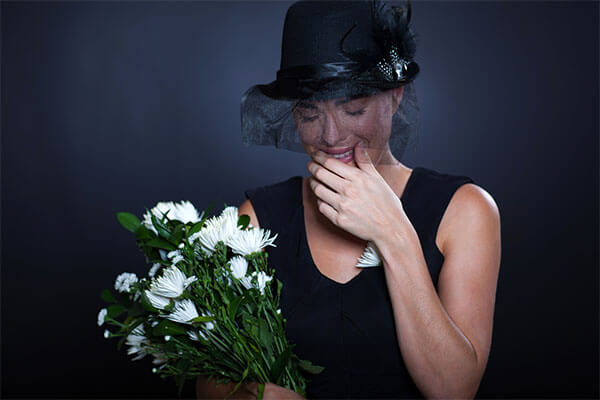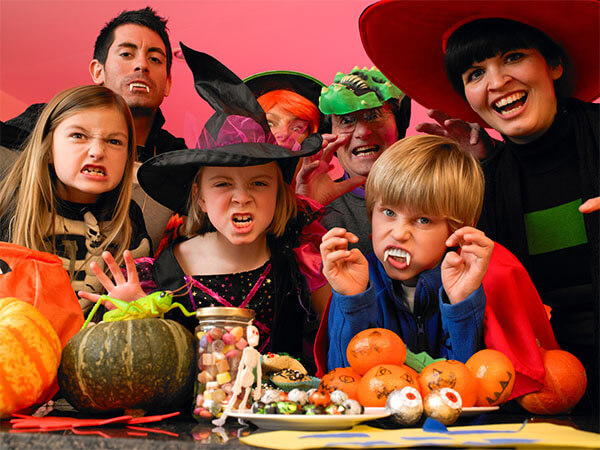INTRODUCE
Some foreigners expect to see lots of traditional fashion when they come to Japan. You can explain to them when Japanese people usually wear traditional clothes.外国人の中には、来日時に着物を沢山見たいと期待している人もいます。彼らに日本人がいつ、着物を着るか説明することができます。
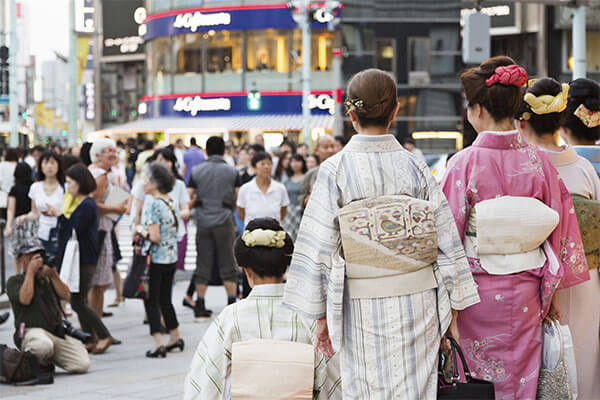
PRESENT
STEP A VOCABULARY
I. Listen and repeat.聴いて、リピートしましょう。
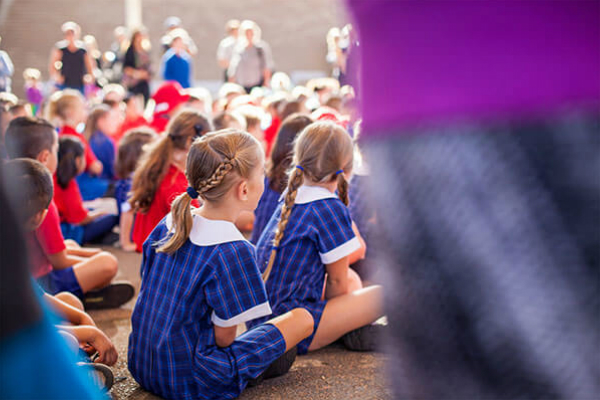
entrance ceremonies入学式 |

graduation ceremonies卒業式 |
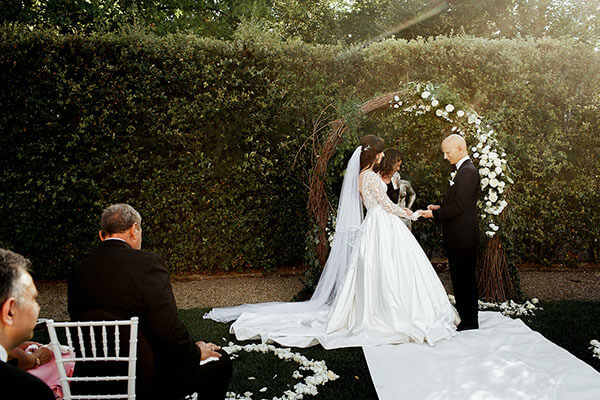
weddings結婚式 |
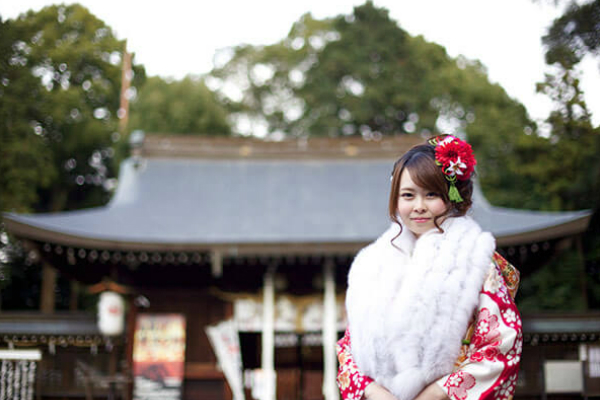
Coming of Age Day成人式 |
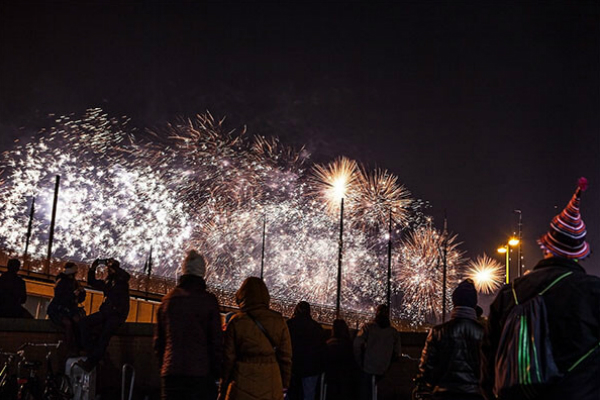
New Year’s新年 |
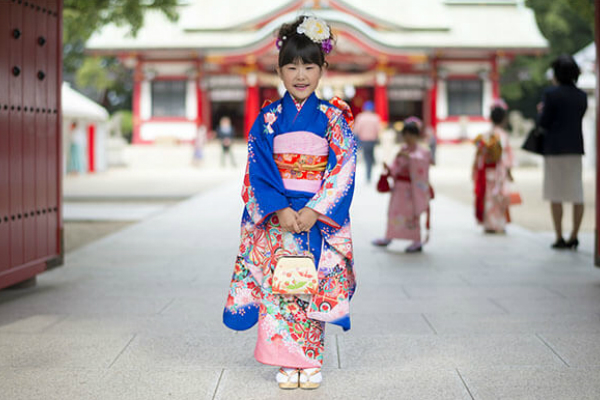
Shichi-Go-San七五三 |
II. Which of the events above did you celebrate recently?上記のうち、あなたが最近お祝いしたのはどの行事ですか?
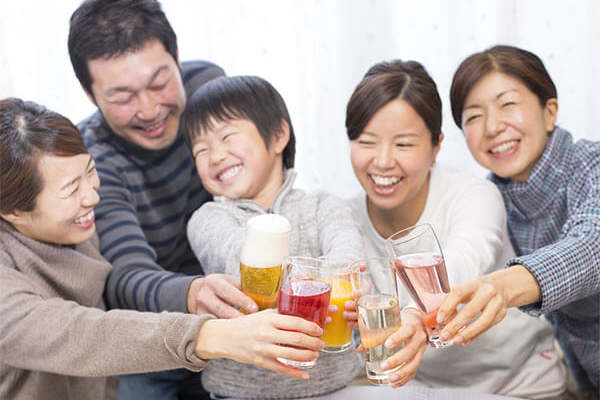
III. Practice reading the words.単語を読む練習をしましょう。
 /eɪ/ |
 /e/ |
|---|---|
age 年齢 |
edge 端 |
aches acheの3人称単数現在形 |
ex 前の |
aid 援助 |
Ed エド(男性の名前) |
STEP B GRAMMAR TIP
Use in, on, and at with time expressions.
in、on、atを使って、時を表すことができます。-
Use in with seasons and months.
季節や月にはinを使います。 -
- We usually eat udon in the winter.
- 私たちは大抵、冬にうどんを食べます。
- My birthday is in August.
- 私の誕生日は8月です。
-
Use on with complete dates, days of the week, and holidays.
日にち、曜日、祝祭日にはonを使います。 -
- Our anniversary is on November 25.
- 私たちの結婚記念日は11月25日です。
- My first day of school is on Monday.
- 学校の初日は月曜日です。
- Do you give people chocolate on Valentine’s Day?
- バレンタイン・デーに、あなたはチョコレートをあげますか?
-
Use at with events that have large groups of people. There are also a few special uses of at: at Christmas and at night.
沢山の人が集まるイベントにはatを使います。他にも特別なatの用法として、at Christmas、at nightがあります。 -
- Some people wear kimonos at weddings.
- 結婚式で着物を着る人もいます。
- Many parents cry at graduation ceremonies.
- 卒業式では多くの親たちが涙します。
- Do you exchange gifts at Christmas?
- クリスマスにプレゼントを交換しますか?
UNDERSTAND
SPEAKING
Yuki is talking to Lorraine, a Canadian member of the Kim Dae Hyun Fan Club, at their club’s cosplay party.
ユキはキム・デヒョンのファンクラブのコスプレパーティーで、カナダ人メンバーであるロレーヌと話をしています。
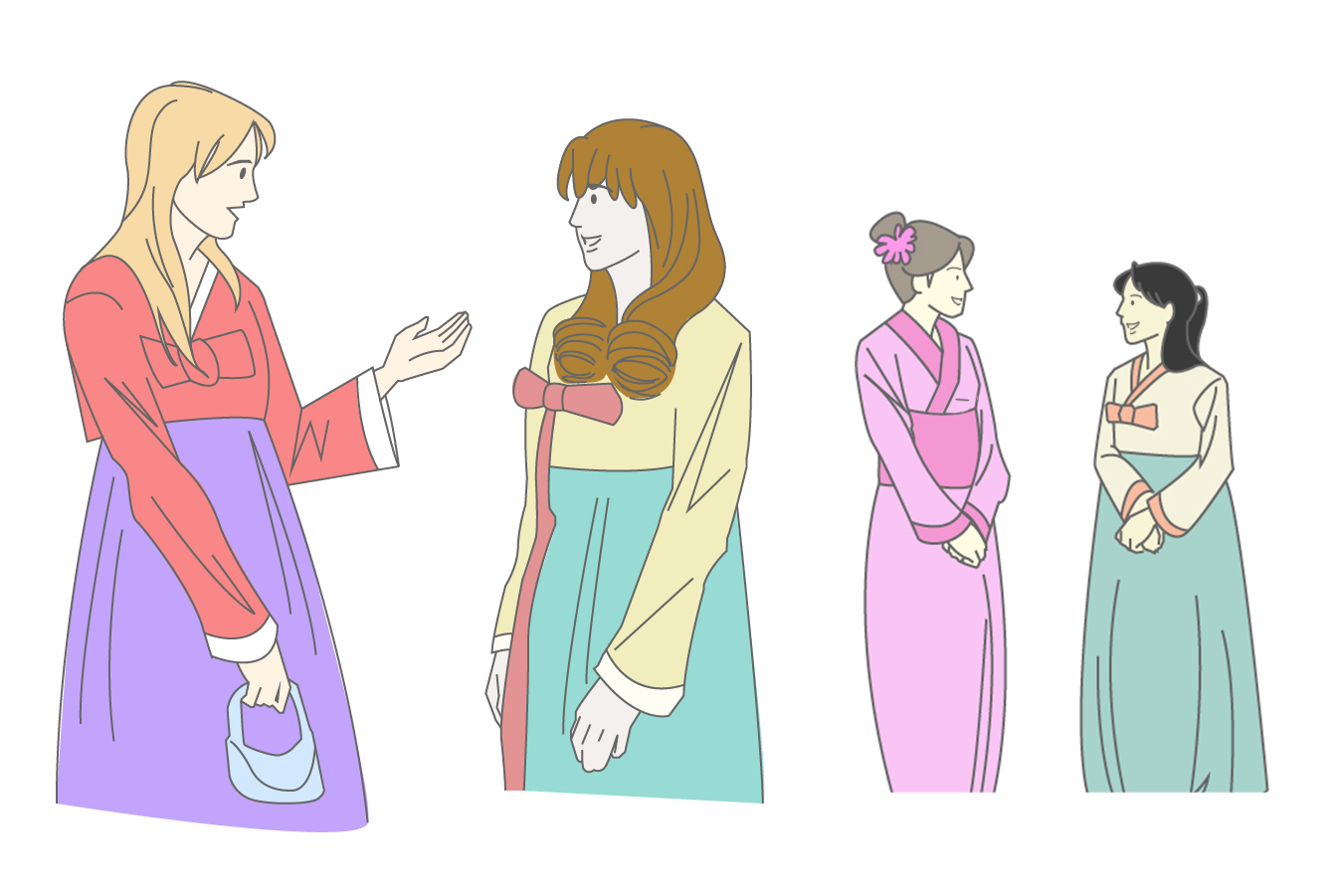 |
- Lorraine:
Look at Sachiko. She’s wearing a kimono.
- Yuki:
Oh, dear. I told her to wear a hanbok!
- Lorraine:
(laughs) Well, that’s new. I almost never see anyone in a kimono.
- Yuki:
Well, kimonos are not something that we wear every day. They’re expensive and not very comfortable, so we wear them only for special occasions. For example, some people wear kimonos at graduation ceremonies. Some people wear them on New Year’s, Shichi-Go-San, or other special holidays. The last time I wore a kimono was at my wedding!
- Lorraine:
Cool! I’d love to see a photo.
TRIVIA
In English, all special days on the calendar are called holidays. If work and schools are closed on these days (ex. New Year’s, Children’s Day), you can call them federal holidays or bank holidays. Special days on the calendar that do not affect work or school (ex. Halloween, Shichi-Go-San) are just called holidays.
英語ではカレンダー上のすべての特別な日は祝日とみなされています。仕事や学校がお休みになる特別な日(新年やこどもの日など)は、「bank holidays 」や 「federal holidays」と呼ばれています。仕事や学校に影響しない特別な日(ハロウィーンや七五三など)は単に「holidays」と呼ばれています。

PRACTICE
STEP A EXERCISE
Fill in the blanks using the words in the box. Some words may be used more than once.
ボックスの中の単語を使って空欄を埋めましょう。一回以上使う単語もあります。
- In Canada, they have the world’s largest winter carnival ___ January.
- Americans eat turkey ___ Thanksgiving.
- In Germany, some people wear lederhosen ___ festivals.
- Indian brides wear a red dress ___ traditional weddings.
- In France, people dress up as clowns ___ April for the Joan of Arc Festival.
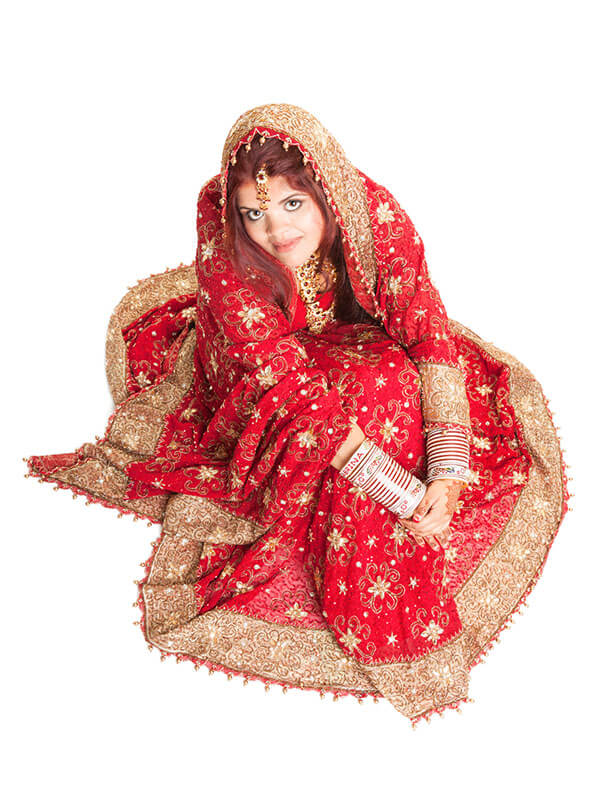
STEP B EXERCISE
Fill in the blanks using the pictures and words in parentheses.
写真や単語を使って、空欄を埋めましょう。
(wear black / funerals) |
1. In most cultures, people __________. |
(wear costumes / Halloween) |
2. Children and adults _____.
|
(wear a toga / graduation ceremonies) |
3. In the Philippines, high school students _____. |
(give chocolates / White Day) |
4. In Japan, boys _____. |
(celebrate my birthday / (your birth month)) |
5. I _____. |
CHALLENGE
Challenge 1
You and your friend are eating at a café when two teens in yukatas walk by. Your friend is really interested in the yukatas.
あなたが友達とカフェでご飯を食べていると、浴衣を着た2人の10代の子たちが通り過ぎました。友達は浴衣にとても興味があります。
Explain when you wear them and other traditional clothes.
いつ浴衣やその他の伝統衣装を着るかについて説明しましょう。
Today's grammar tip
- in
- on
- at
 |
Challenge 2
Discuss your ideas. あなたの意見を言いましょう。
 If Time
If TimeAllows
1 KIMONOS |
2 TRADITIONAL FASHION |
3 EVENTS |
|---|---|---|
|
1 KIMONOS
|
2TRADITIONAL FASHION
|
3EVENTS
|
FEEDBACK
I can explain the role of traditional fashion in modern Japan.現代の日本における着物などの役割について説明できるようになる。
LESSON GOAL ACHIEVEMENT
-
4
Very GoodCould complete the task with ease
-
3
GoodCould complete the task with some clarifications
-
2
FairCould complete the task with additional instructions
-
1
PoorCould somehow complete the task with difficulty
PERSONALIZED FEEDBACK
-
RANGE
表現の幅
語彙をどの程度使えるか How well can you use vocabulary? -
ACCURACY
正確さ
文法が正しく使えているかどうか Are you using grammar correctly? -
FLUENCY
流暢さ
円滑に喋ることができるかどうか Are you able to speak smoothly?
